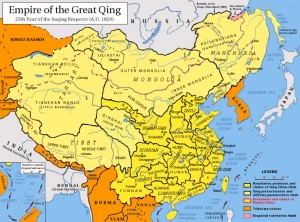A Response to the Claim of Chinese Sovereignty Over Okinawa
 According to recent news reports, a growing group of Chinese officials and scholars has commenced a semiofficial campaign to challenge Japanese sovereignty over Okinawa. This is of course in addition to the widely publicized Chinese efforts to challenge Japanese control over the Senkaku / Diaoyu Islands. The basis for the claim to Okinawa appears to be a combination of early history and the Cairo Declaration, which the United States, China, and the United Kingdom issued in 1943 to help prepare the post-war order in East Asia. The argument goes like this: Okinawa and the other Ryukyu Islands were originally Chinese territory because the Ryukyu Kingdom was a tributary state of the Ming and Qing Dynasties; Japan stole the Ryukyus by invading them in 1609 and formally annexing them in the late 1870s; the Allies demanded the reversion of sovereignty over Okinawa to China in 1943 by stating in the Cairo Declaration that “all the territories Japan has stolen from the Chinese . . . shall be restored to the Republic of China”; and Japan agreed to the reversion of sovereignty by accepting the 1945 Instrument of Surrender, which provided for the enforcement of the Cairo Declaration. In this post, I’d like to identify a few reasons why this argument is unpersuasive.
According to recent news reports, a growing group of Chinese officials and scholars has commenced a semiofficial campaign to challenge Japanese sovereignty over Okinawa. This is of course in addition to the widely publicized Chinese efforts to challenge Japanese control over the Senkaku / Diaoyu Islands. The basis for the claim to Okinawa appears to be a combination of early history and the Cairo Declaration, which the United States, China, and the United Kingdom issued in 1943 to help prepare the post-war order in East Asia. The argument goes like this: Okinawa and the other Ryukyu Islands were originally Chinese territory because the Ryukyu Kingdom was a tributary state of the Ming and Qing Dynasties; Japan stole the Ryukyus by invading them in 1609 and formally annexing them in the late 1870s; the Allies demanded the reversion of sovereignty over Okinawa to China in 1943 by stating in the Cairo Declaration that “all the territories Japan has stolen from the Chinese . . . shall be restored to the Republic of China”; and Japan agreed to the reversion of sovereignty by accepting the 1945 Instrument of Surrender, which provided for the enforcement of the Cairo Declaration. In this post, I’d like to identify a few reasons why this argument is unpersuasive.
